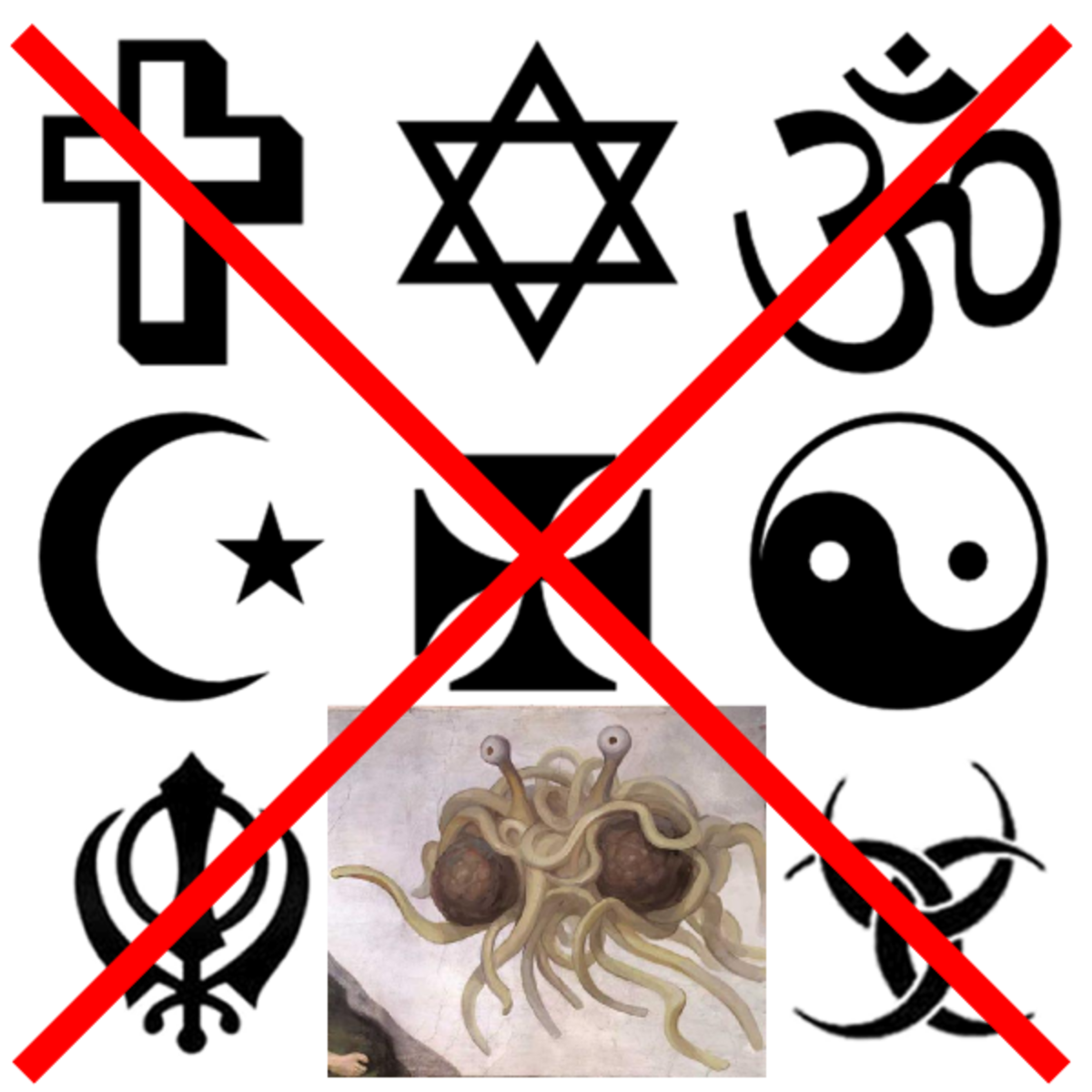Does he think you're a bitch? A Quiz
A little self-reflection can help save your relationship

Many wives don’t consider the possibility that they could be a b-tch because, well, their mates put up with them. But whose husband will respond honestly when asked, “Do you think I am a b-tch?” You simply cannot take a man’s answer at face value here. Not when his primary motivation is to avoid pissing off his mate. Instead, let’s play this version of 20 Questions. Consider the following common behaviors that can clue you into his true feelings about you.
Simply answer Yes or No. Does he…
1. find numerous excuses to get out of the house? Short errands, buddy dates, overtime at the office, in-law issues.
2. start arguments as a reason to storm out?
3. withdraw into his own world through hobbies?
4. have any addictions to gaming, alcoholism, pornography?
5. seem consumed by sports as either a participant or spectator?
6. watch too much television?
7. overwork?
8. seem distant and/or callous when you talk to him?
9. withhold sex by coming up with excuses for being uninterested?
10. mutter under his breath so you can’t hear his grumbling?
11. decline joint social invitations?
12. . visit his family or friends without pressuring you to join him?
13 not ask for your opinion or advice anymore?
14. hide his purchases?
15. hide any of his habits?
16. keep secrets from you?
17. lie to you about minor and major matters?
18. had any extramarital affairs that you know of?
19. appear to shoot you wordless looks that seem contemptuous?
20. not bother to argue with you anymore?
Some men will snap and bark back, but not all men will make the sustained and painful effort to go toe-to-toe with a b-tch wife. They give up. They shut down. They prefer to back down to maintain some semblance of peace.
A healthy-minded man—or woman—wants to earn respect, to feel significant and to have freedom and control over his own life. If a b-tch stands in his way, he may not fight for what is rightfully his due to a myriad of reasons, including low self-worth, misguided religious beliefs, and financial or family responsibilities. Denied these foundational building blocks of self-worth, he will balk psychologically (withdrawing), emotionally (depression), physically (absence) or spiritually (becoming “dis”-spirited) even when he does not recognize it consciously.

What compels you to bitch?
Maybe you can’t help feeling the urge to b-tch. After all, you really have good reasons for the decisions you make and the life you want to live. You have standards. And you don’t go around screaming and yelling all the time to get your way. You’re not a mean, crazy b-tch. You just don’t feel you have to put up with a bunch of crap.
Why are you a b-tch?
Let’s do just a little reflecting to see where these feelings are coming from. Are there areas where you might lighten up a bit? Put yourself in the other person’s shoes. Chances are, you’re in a relationship with people who are less domineering than yourself. Two strong personalities are like two beta fish in the same bowl. They’d fight until their fins get tattered to shreds and one of them dies. You’ve probably attracted a mate who needed or even liked your strong personality. But for your mate, giving in all the time gets tiresome and old. Being married to a b-tch (unless your mate prefers you that way) can change loving feelings into resentment.
Let’s explore what the possible reasons for your unrelenting attitude and behaviors.
Control
Every human needs a sense of control in her life. Self esteem depends upon it. No healthy mind thrives on being controlled. But feeling a sense of control in your life is far different from needing to be in control of all things. Self-control is healthy. Being controlling is not.
Being controlling means you prefer to be in charge of others because you can direct activities and outcomes to the way you like them. It means wanting everyone around you to do things your way. Do you find that you constantly give our orders, directives and instructions even when it isn’t in your job description? Do you like being the one that people consult for answers?
Needing control can come from several emotional soft spots:
- Ego. You feel a sense of power when you’re in control. Power is an intoxicating feeling. A controlling b-itch likes the power. It makes her feel superior. It gives her status even if in her own mind. In the workplace, higher positions come with responsibility and authority (which translate into control). Often, a woman who enjoys authority in the office will bring that feeling into her home.
- Vulnerability. NOT being in control makes you feel vulnerable. For example, a controlling b-tch may feel uncomfortable when she isn’t the one behind the wheel in a car. Letting someone else drive feels scary because she’s at the mercy of that person’s driving ability, and she usually feels that she’s a better driver than anyone else. At least she can determine where the car is going and whether or not it will crash!
In the office, controlling b-tches believe that there is only one right way to do a job: their way. They don’t have faith in anyone else. They don’t want to be held responsible for someone else’s inferior work.
A woman who has experienced abuse can become controlling in order to avoid being a victim. She knows what it feels like to be controlled or at the mercy of another person’s mean-spirited will. She will not allow herself to be controlled and the only way she knows how to accomplish this is to be the one who is doing the controlling. Sharing or handing over control to another person is risky for her. She has a “control or be controlled” mentality.

Intolerance
There is an idea that if everyone in the world would adopt truly could end all war and conflict: Everyone is meant to be different. Somehow, whether it is by religious or social ideology, people want to force their own beliefs upon everyone else. Not just religious beliefs but moral, philosophical and intellectual belief systems as well. They find it inexorably difficult to tolerate other ideas of how to live.
This inability to accept people as they are causes greater inner turmoil. There is labeling of “good” or “bad” and “right” or “wrong” and the b-tch wife takes it up as a personal cause to right all the wrongs of the world, and if not the world, then at least in her marriages. Yes, a b-tch really believes she is helping the world by fixing her husband first. Are you an intolerant b-tch? Here are some signs:
*Believing there is a strong line between “right” and “wrong.”
*Avoiding people who don’t share your beliefs.
*Not allowing your children to play with others who are different.
*Trying to change your husband’s habits or beliefs.
*Setting “rules” for others when they visit your home.
*Feeling angry or upset about other people’s (including your mate’s) beliefs.
*Throwing fits about something you don’t like.
Perfectionism
The perfectionist b-tch comes across as being a snooty, demanding or accomplished. She’s most likely a high achiever due to her own inexhaustible efforts to excel. High standards are a good goal but since absolute perfection is impossible, a perfectionist is destined for failure. The problem is exacerbated by the fact that everyone knows this except for the perfectionist. She is the only one who does not realize that she is pursuing the impossible. So, with unrelenting intensity, she drives everyone around her to meet her expectations. The signs are:
- Never feeling satisfied with an outcome.
- Feeling that there is never enough time to do a good job.
- Unaccepting of other people’s efforts.
The penalties? Deep dissatisfaction. Depression. Nagging. Rages. Icy silent treatment.
What drives the perfectionist? Surprisingly, what drives this woman is low self-esteem even though her outward appearance gives exactly the opposite impression.
The perfectionist b-tch believes that her worth comes from what she accomplishes. She believes that others value her only based on her achievements and performance. She actually lives in fear of failure. She is afraid of making mistakes, subconsciously believing that others will reject her if her failures or weaknesses are revealed. And she will go to any lengths to be sure that never happens. The threat of humiliation and embarrassment is a very strong motivator. In her mind, she holds an image of perfection and will not be satisfied until it is met. But this unrealistic expectation places enormous demands on those around her.

Self-centeredness
You, you, you. It’s always about you. Plain and simple. You know the b-tch in the office who only talks about her life, never asks about yours. All her little actions show she think only about herself. She doesn’t refill the coffee pot in the break room. She doesn’t realize her phone voice is disturbing your own phone conversation. She shows up late and never brings a thing to your get-togethers. And she expects you to help with her workload, babysit her kids or bail her out of any jam without even asking first. It is as if she is the queen and everyone else is her minion to do her bidding.
In a marriage, self-centeredness rears its ugly head by putting her priorities first. That goes for her family, her career, her health concerns and her weekend plans. She may care about her mate, but not enough to put her own needs, wants and demands aside.
Self-centeredness is a basic part of human nature. Babies are only aware of their own needs. But as we grow up in a civilized community, we are taught that cooperation with others allows all of us to survive. Some people don’t learn this lesson because:
- They were indulged throughout their lives. Whether they were spoiled by their parents and family or given special attention from the rest of the world due to any special traits, they learned that people will cater to them. Special traits may include beauty, skill, talent or even health handicaps. A person might be deemed special within her own family. An only child? A revered daughter? They expect the pattern of being spoiled by others to continue into adulthood.
- On the other end of the spectrum, these people may not have been given any attention or consideration from others in their own families. Because of this, they have had to demand to be seen and heard. No one gives them any attention or any breaks so they have to take them. They’ve had to be survivors, and they think about themselves because they believe that no one else will.
Self-centered b-tches can learn a new way. Selfishness is a learned trait and in some ways, it is just a bad habit.
Narcissism
There is a slight difference between a self-centered b-tch and as narcissistic b-tch. Narcissistic b-tches can be controlling and self-centered, but if they are egotistic, they truly believe that they are superior to others. For whatever reason. It could be they believe they are more intelligent, more talented, more skillful or more beautiful than others. They may believe that their bloodlines are purer or that what they own is better. As a result, there is a lack of respect for others. They patronize others with a tone of condescension. They have a sense of entitlement due to their “specialness.”
These are the women who need to be admired yet they often complain that others are jealous of them. Even though they are prone to tantrums and rantings, they can be charming and have a host of admiring underlings. They aren’t good team players and yet, they have no problem taking center stage all by themselves.
But where does this ego come from? Even within the psychology community, there is debate over whether narcissism is born or bred. There is consensus that everyone has a little bit of narcissism within her; but extreme narcissism can be pathologically dangerous. In fact, it can fall into the realm of mental illness or personality disorder.

Health complications
A host of medical conditions can bring on b-tchy feelings. Irritability can be a symptom instead of a trait. Here are some health problems that may be the underlying cause of your b-tchiness:
- Illness: Diabetes (mood swings from blood sugar levels that are too high or too low); cancer, heart problems, fibromyalgia, etc.
- Pain: Mild to severe headaches, joint and muscle pain.
- Menstrual cycle symptoms.
- Menopause symptoms.
- Depression or other emotional issues.
- Mental instability. Undiagnosed mental or emotional imbalance.
- Obesity and unfitness.
- General poor health.
Not feeling good lowers one’s tolerance level. If you’re not feeling healthy, you’re not going to have the energy to think about others. That is why it is imperative to take good care of yourself and seek proper medical attention. Get regular check-ups and visit a counselor or psychologist to discuss on-going problems in your life, including social and marital issues.
Addictions and Obsessions
Addictions and obsessions drive and control behavior. Gratifying the addiction becomes the priority. Everything else, including being civil and loving, slips way down on that totem pole. Often, we give ultimatums to those with addictions and obsessions, but anyone who works with this sector of the population knows that ultimatums and threats don’t work in bringing about change. People with addictions cannot control the addiction.
If you’re a b-tch due to an addiction or obsession, you need help—therapy, God, rehabilitation—to resolve it. There is no other option. You are fooling yourself if you think you can manage an addiction all by yourself. The mind may be willing, but the body is weak.
Stress
Stress and pressure makes us behave in unpleasant ways. We lash out--tense, anxious, panicked—when we feel stress and pressure. Work deadlines, family strife, parenting challenges, money woes. Stress comes from many sources. Just having too many things to do and so little time in which to do it puts us on edge and we tend to get a little b-tchy toward others when they get in the way of our getting things done.

Immaturity
Immature women b-tch because they haven’t experienced better ways to achieve their goals. They experience with and resort to all types of b-tch methods to see what works. Sometimes, they outgrow their b-tchy ways as they mature into womanhood—unless any of their previous tactics found success which would only reinforce their b-tchy practices.
Insecurity
Many women become b-tchy out of insecurity or low self-esteem. In fact, many of the weaker character traits that drive a b-tch are rooted in low self-esteem because any woman with a healthy level of esteem simply doesn’t need to be unpleasant to achieve her goals. Deep within, there is a fearful belief that she isn’t worth much or that she is a fraud and it takes tremendous effort to uphold the façade of (capability), shellacked with a thick coating of b-tch so no one can break through to discover the truth.
Jealousy
A jealous woman is an insecure woman. See above. But if you think that a jealous wife fending off another woman turns her into a b-tch, just wait until you see a jealous wife defending her children. It becomes a death match. A woman who feels the need to protect what is hers will act like a ravenous hyena, making the term ‘b-tch’ seem tame.

Religious fanaticism
Religious folks mean well. They believe that their lives must adhere to rules set by a higher power. The problem is that a religious fanatic expects you to live up to those same rules, too. She honestly feels your eternal salvation depends upon it. Whether out of fear or devotion, her drive to follow religious doctrine causes her to apply pressure upon everyone around her. Do you remember Stephen King’s novel “Carrie” in which the girl’s mother was a religious nut? Everyone could see how her fanaticism crossed the line into mental illness but when anyone forces his or her religious beliefs upon another, the method becomes madness.
Religious b-tches are terrified of eternal damnation. If they truly knew and understood God’s love, they never would press another soul into religious compliance. God is love. He must be found within. Discovered by one’s own natural yearning for Him. To “lead” another person to Him in any other way is delusionary. But many religious people believe that they are doing God/Jesus/Allah/Buddah/etc. a favor by “saving” another soul from damnation. That is a strong, irrefutable motivator for religious fervor, misguided as it is.
Need for drama
Some b-tches get bored easily. They don’t know how to live life at a steady pace. They crave drama and will create it in any way possible. She might not realize that sometimes she starts an argument for the pure entertainment of it. She imagines offenses. “I saw you flirting with the waitress.” Or causes last minute scenes. “I can’t go. I feel sick.”
Fear
Fearful women can voice their anxieties through b-tchiness. Like a badger backed into a corner, they snap and snarl when, really, they’re afraid. Beliefs don’t have to be true phobias to cause an overreaction; they might be real or imagined threats from feeling vulnerable to an attack to being take advantage of financially. “Damn it, I told you never to use the ATM!” “Will you remember to lock the doors at night or don’t you care that I could be murdered in the middle of the night? You’d sleep right through it.”
Dissatisfaction and un-fulfillment
Feeling jaded and disillusioned about life doesn’t give a girl cause to project a positive, hopeful attitude. If life sucks, people suck. And if people suck, she’s b-tchy towards them. Everyone who seems to be enjoying better luck, finances, careers, health, family and love lives underscores her miserable existence. Every dismal feeling and thought erupts from her mouth, spewing out her malcontent to any unlucky soul in her path.

Childhood abuse or turmoil
Many b-tch wives have had to self-protect because of early childhood abuse. They learned young that people can hurt them. If that pain came at the hands of a man, all the worse for their future husbands who need to be understanding and patient with the occasional backlash from their wives. Subconsciously, an abused woman will take out her anger upon her husband should he inadvertently spark a memory of the painful episode. For example, a woman I know would lash out at her husband if he tried to coerce her into doing anything she didn’t want to do. She never wanted a man to make her feel oppressed the way her father had done when she was a small child. Many abused wives have trouble with sexual intimacy after suffering sexual abuse. In some cases, the memories were so repressed that both spouses were unaware of what went on and why there was physical intimacy issues in their marriage. Their only clue was that she went berserk if she was touched in a particular way or spoken to using certain phrases. Some women have hateful feelings towards men in general, even though they love their husbands.

You can be better
Simply being aware of your habits and behavior can set you on a path to being a better person. It takes honesty, humility and courage but aren't those admirable traits themselves? I encourage you to take control over your own destiny and be the catalyst for positive change in your relationship--and in your own personal growth.
Let me know how you're doing in the comments below. We can do this together.








